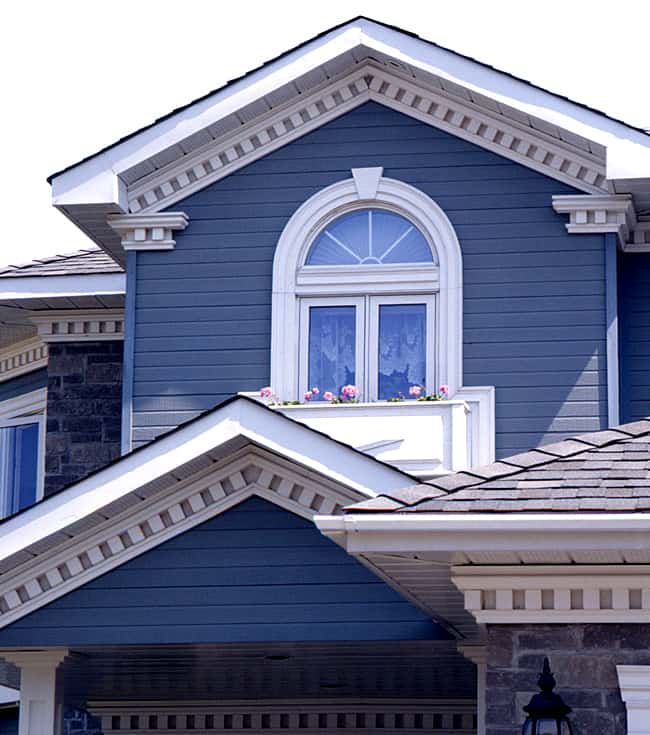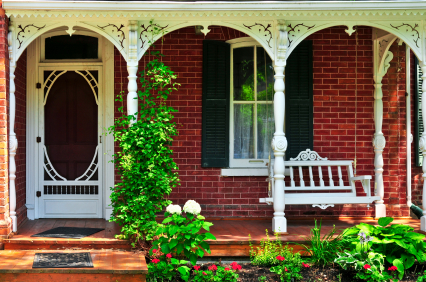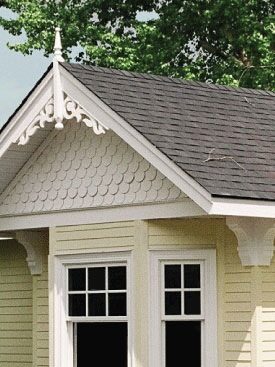When it comes to enhancing the exterior of your home, decorative outdoor trim can be a game-changer. As someone who has spent countless weekends painting and installing custom trim, I can tell you it not only adds character but also increases your home’s value. Let’s dive into everything you need to know about decorative outdoor trim!
What is Decorative Outdoor Trim?
Decorative outdoor trim refers to the decorative elements that are added to the exterior of a building. These features can range from simple moldings to intricate cornices and can be made from various materials, including wood, PVC, and composite materials. Not only do they serve an aesthetic purpose, but decorative trims can also protect your home from the elements.
The Importance of Decorative Outdoor Trim
- Aesthetic Value: Enhances the beauty and character of your home.
- Increased Property Value: A well-finished exterior can significantly boost your home’s market value.
- Weather Protection: Acts as a barrier against water and pests.
Types of Decorative Outdoor Trim
Understanding the different types of decorative outdoor trim can help you decide which is best for your home. Here’s a comprehensive list:
1. Wood Trim
Wood trim is the traditional choice, offering beauty and warmth. It’s highly customizable but requires regular maintenance.

Pros:
- Natural and attractive appearance
- Can be painted or stained
Cons:
- Requires regular maintenance
- Susceptible to rot and insects

2. Vinyl Trim
Vinyl trim is a low-maintenance alternative that comes in various colors and styles.
Pros:
- No paint necessary
- Highly durable and weather-resistant

Cons:
- Less customizable than wood
- May not have the same authentic look
3. Composite Trim
Composite trim is made from a blend of materials, offering durability and a wood-like appearance without the drawbacks of real wood.

Pros:
- Resistant to moisture and pests
- Low maintenance
Cons:
- Can be more expensive than vinyl
- Limited color options

4. Fiber Cement Trim
Fiber cement trim offers the look of wood without the risk of rot. It’s an increasingly popular choice among homeowners.
Pros:
- Fire-resistant and durable
- Low maintenance

Cons:
- Heavier than other materials
- Higher installation costs
Choosing the Right Trim for Your Home
When selecting decorative outdoor trim, consider the following factors:
1. Architectural Style
Your home’s architectural style should guide your trim choice. For instance, a Victorian home might benefit from intricate wood detailing, while a modern home may look best with sleek vinyl or composite trim.
2. Climate Considerations
Your local climate plays a vital role in material selection. For instance:
| Climate Type | Recommended Trim Material |
|---|---|
| Humid | Composite or Fiber Cement |
| Dry | Vinyl |
| Cold | Wood (with proper treatment) |
3. Budget
Determine your budget before making a decision. Remember to factor in both material costs and installation fees. Here’s a quick comparison:
| Material | Cost per Linear Foot | Maintenance Level |
|---|---|---|
| Wood | $1 – $5 | High |
| Vinyl | $2 – $4 | Low |
| Composite | $3 – $6 | Low |
| Fiber Cement | $4 – $8 | Low |
Installation Tips for Decorative Outdoor Trim
Installing decorative outdoor trim can be a DIY project or something you choose to hire out. Here are some tips based on my personal experience:
1. Measure Carefully
Ensure you take accurate measurements. Incorrect measurements can lead to wasted materials and expensive mistakes.
2. Use Quality Tools
Invest in good quality tools. A miter saw, level, and nail gun can make a huge difference in the installation process.
3. Follow Manufacturer Guidelines
Always adhere to the manufacturer’s installation instructions. This will ensure longevity and optimal performance of your trim.
4. Apply a Weatherproof Sealant
If using wood trim, apply a weatherproof sealant to protect against moisture and pests.
5. Paint and Finish
For wood trims, finish with quality exterior paint to enhance appearance and durability. Always use paint that is suitable for outdoor use.
Maintaining Decorative Outdoor Trim
To ensure your decorative outdoor trim looks great for years to come, routine maintenance is key. Here are some best practices:
1. Regular Inspections
Check your trim regularly for signs of wear, rot, or damage. Early detection can save time and money.
2. Cleaning
Keep your trim clean by washing it with a soft scrub brush and mild detergent. This will help preserve its beauty and prevent mildew.
3. Repainting
Depending on the material, you may need to repaint your trim every few years. This helps maintain its protective coating.
FAQs About Decorative Outdoor Trim
1. What are the best materials for outdoor trim?
The best materials for outdoor trim vary based on climate and personal preference. Wood, vinyl, composite, and fiber cement are all excellent options, each with its pros and cons.
2. How do I choose the right trim style?
Consider your home’s architectural style, existing color scheme, and personal taste when choosing the right trim style.
3. Can I install decorative outdoor trim myself?
Yes, if you have moderate DIY skills and the right tools, you can install decorative outdoor trim yourself. Just be sure to follow all guidelines!
4. How often should I maintain my outdoor trim?
Regular inspections should be done at least twice a year, with more frequent maintenance needed for wood trim. Clean and repaint as necessary.
Conclusion
Decorative outdoor trim is a fantastic way to elevate your home’s curb appeal while providing functional benefits. With the right choice of materials and proper installation, your outdoor trim can withstand the test of time and weather, adding beauty and value to your property. Whether you take the DIY approach or hire a professional, the joy of transforming your home with beautiful trim is well worth the effort!